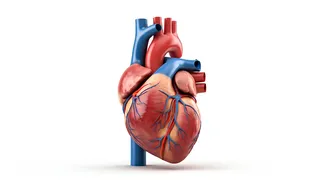Dietary Habits
Diet plays a crucial role in maintaining a healthy heart. Poor dietary choices often contribute to several heart-related issues, including unhealthy cholesterol
levels and high blood pressure, both of which are common problems. The cardiologist emphasizes the importance of a balanced diet rich in fruits, vegetables, and whole grains. These foods provide essential nutrients and antioxidants that protect the heart. Additionally, limiting the intake of processed foods, saturated fats, and excessive sugar is crucial. Consuming these types of food often leads to weight gain and increases the risk of heart disease. The doctor advises careful monitoring of portion sizes and choosing lean protein sources to support overall cardiovascular health. By making informed food choices, individuals can substantially reduce their risk of heart problems and enhance their quality of life. This dietary approach focuses on prevention and proactive health management.
Physical Activity
Regular physical activity is vital for a healthy heart. The cardiologist recommends engaging in at least 150 minutes of moderate-intensity or 75 minutes of vigorous-intensity aerobic exercise per week. These activities enhance cardiovascular function and assist in maintaining a healthy weight. Examples include brisk walking, jogging, cycling, and swimming. Exercise strengthens the heart muscle, lowers blood pressure, and improves cholesterol levels. It also helps manage stress, which can indirectly impact heart health. The doctor suggests incorporating strength training exercises at least twice a week to build muscle mass, which helps boost metabolism. Starting slowly and gradually increasing intensity is key, especially for individuals who are new to exercise. The benefits extend beyond physical health, contributing to improved mood and overall well-being. This lifestyle factor emphasizes the proactive role of physical movement in preventing heart disease and promoting a healthier lifestyle.
Smoking & Vaping
Smoking and vaping pose significant threats to heart health. The cardiologist strongly advises against both. These habits damage blood vessels, increase blood pressure, and elevate the risk of blood clots. Smoking is a primary cause of several heart conditions, including coronary artery disease and stroke. Even vaping, often perceived as a safer alternative, contains harmful chemicals that can affect cardiovascular health. Nicotine, a common component in both, raises heart rate and blood pressure, placing undue stress on the heart. Quitting smoking is one of the most effective steps someone can take to improve heart health. It reduces the immediate risk of heart disease and allows the body to begin repairing the damage. The doctor encourages individuals to seek support from healthcare professionals or support groups to quit smoking or vaping. By eliminating these habits, people can make a powerful positive impact on their cardiovascular health and overall wellness, leading to a healthier life.
Stress Management
Effective stress management is essential for heart health. Chronic stress can lead to increased blood pressure, inflammation, and other physiological changes that strain the heart. The cardiologist recommends incorporating stress-reducing practices into daily life. Techniques such as meditation, yoga, deep breathing exercises, and spending time in nature are beneficial. These activities can help calm the nervous system and reduce the harmful effects of stress. Maintaining a healthy work-life balance and setting realistic goals is also crucial. The doctor also suggests finding social support through friends, family, or support groups. Social interaction can buffer the impact of stress and enhance emotional well-being. Practicing mindfulness and gratitude can shift the focus from stressors to positive aspects of life. By actively managing stress, people can reduce their risk of heart disease and improve their overall quality of life. This lifestyle component focuses on mental and emotional health, which directly influences cardiovascular well-being.




















